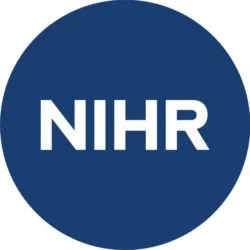Try Kanbanchi now
Start your free trial

When you think about project management, what are you actually thinking about? Goals and strategy, tasks and deadlines? A well-educated project manager may learn different methodologies and be acquainted with all the best practices but then they start working and real life happens. People-oriented project management will be a great help.

You set up a project board and create tasks, you have everything on your timeline, you shift the bars, and apply necessary tags. What may go wrong? But how many times have you faced rejection from your team? You may suggest the best method, you may choose the app that will have all the features needed but then realize that people just don’t want to use it.
For more than 20 years I’ve been managing different types of projects without even naming it so. From a high school competition to the marketing department, there were different teams with different goals. What was always the same is that behind tasks and deadlines were always real people.
The art of project management is not planning but the ability to organize a team of different people around one goal. This is more than just planning on a paper or any digital tool. It’s about daily communications and encouragement.
To expand your knowledge, we also recommend checking out other articles on our blog:
11 Principles of Project Management to Guide Your Project to Success
The 5 Stages of Project Management
A short answer would be nothing. But we need to keep in mind that even the best tools may not solve your problems. “We stopped using Kanbanchi mostly because we decided that we wanted to improve our process overall and that no individual tool would do that for us.” – this is what I heard from one team leader that used Kanbanchi for a month or so.
Software is not a magic wand that will establish your work processes so that all your projects will be successful but software can help you go through the transformation faster.
I should say that I even like when teams come to Kanbanchi and then realize that they need to change something in their workflow. We can help faster in such cases than when all the processes are established like the rock and can’t be changed even if a team is not productive at all.
Anyways, let’s get back to our main thought: nothing is wrong with the PM apps but they need to be more people-oriented. This is not only to say about the UX/UI but about their flexibility in general.
Kanbanchi is widely used at the National Institute for Health Research (NIHR) which is performing health studies for the UK Department of Health and Social Care.

NIHR is a large organization with a lot of projects (studies) going on simultaneously. They need a project management app that would be capable of supporting their very different teams. Back in 2016 NIHR IT department found Kanbanchi and suggested introducing it on a wider level. To make the story short, the app became a success story and now it’s even used by nurses on their level.
Kanbanchi is easy and intuitive to use, it can be quickly mastered even by not tech-savvy people. Ease of use was the main factor of success at NIHR. Those who need basic features like an online Kanban board may use it, and those who need more complex tools, like Gantt chart, for example, are happy to find it in the same app. At the same time, all people can collaborate because they use the same software.
This is just one of many success stories of large companies using Kanbanchi but they all have one thing in common – people that are behind the projects. People who are actually making those projects. People who are different but who can find their tools that are comfortable to use.
I’m sure you have read many good books on project management. They have all the good pieces of advice like setting S.M.A.R.T. goals, planning in advance, introducing better time-management, and so on. However, a good project manager is not a person who only cares about goals and time. Much more we should care about how company goals correlate with each team member’s goals and how my team members may plan their time so that the company’s time management works well.
In order to become a successful project manager, you should learn at least a bit of psychology. I’m not saying to know individual types and mental health issues but at least to understand and accept that all people are different. To accept it means to believe in people around you, to believe that all they do comes out of the desire for good, not for the bad.
When you plan a project, how often do you consult with your team members on how many resources they have available? This question becomes extremely important for small teams where people often take part in several projects at thу same time and have to juggle their tasks every day. Every day they need to review priorities and decide what they can do now and later.
It’s very important that a project management app could help instead of making this process even harder. Flexibility plays a very important role in this case.
We have built Kanbanchi keeping all the above said in mind. We are going through this with our own team, and we understand what you are going through. Agile principles that we have put in the core of Kanbanchi, are good support for people-oriented project management.
Want to try Kanbanchi with your team?
Start your free trial